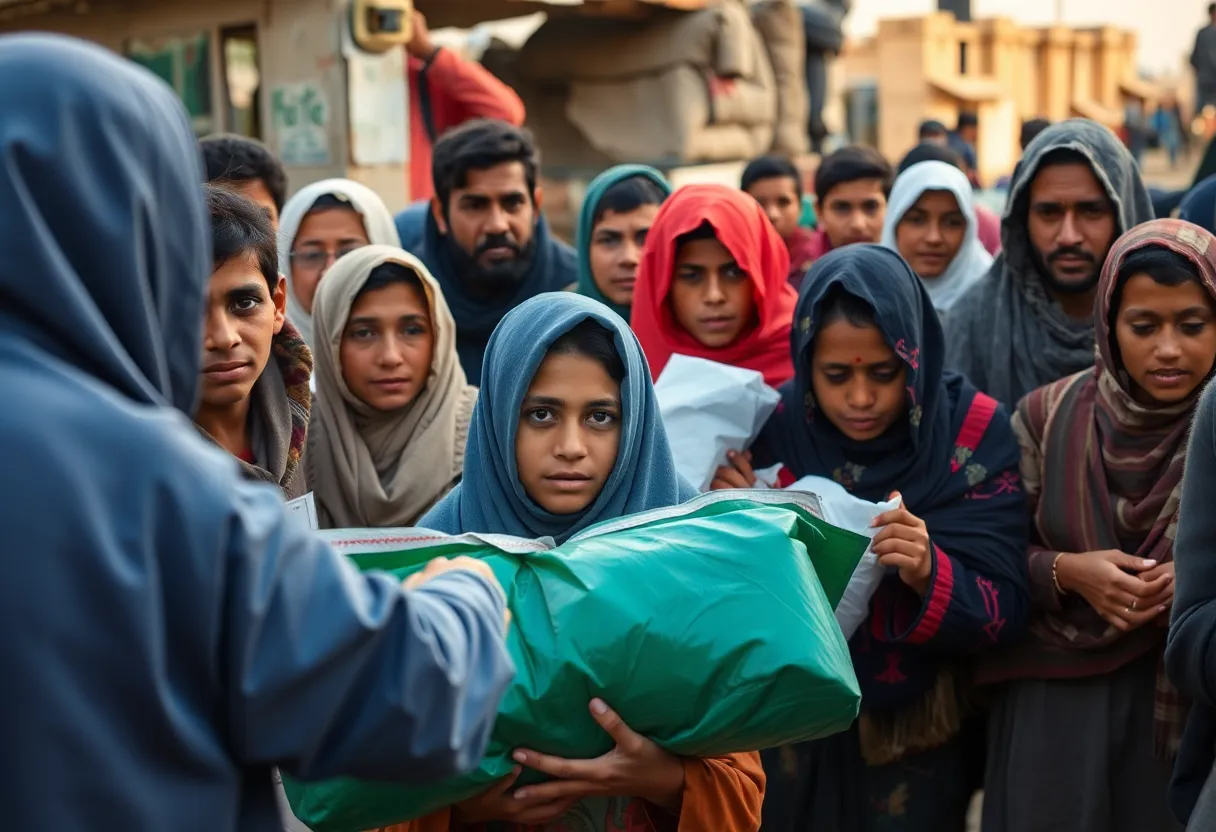

Humanitarian Crisis in Gaza
The humanitarian crisis in Gaza is worsening, prompting international calls for action. With millions facing famine and severe shortages of food and medical supplies, aid agencies warn of impending disaster. Recent tragic events, including a shooting at a museum in Washington, D.C., have heightened tensions. Despite Israel allowing limited aid trucks, the delivery remains insufficient against the dire needs of the population. Global condemnation follows as the death toll rises and the risk of famine looms. Efforts by countries like the UAE provide some hope amidst the ongoing crisis.
The situation in Gaza continues to worsen, leading to pressing international calls for action as the humanitarian crisis there reaches alarming levels. Recently, some tragic events unfolded, including a shooting incident outside an event at the Capital Jewish Museum in Washington, D.C., which resulted in the deaths of two Israeli embassy staff members. This incident has added layers of complexity and tension to the already fraught situation.
Several aid agencies have spoken out, describing the current flow of food, medicine, and essential supplies into Gaza as “ridiculously inadequate.” With a staggering two million people in the region facing imminent famine, dire reports highlight that half a million Palestinians represent one in five individuals staring starvation in the face. Particularly striking is the news that up to 14,000 babies are at risk of dying from malnutrition amidst overwhelming shortages.
Although Israel announced it would allow trucks to bring aid into Gaza following a two-month blockade, only a handful of trucks, just five, managed to cross the border as of Tuesday night. This meager delivery falls short of the critical needs of the area, with humanitarian workers reporting that they cannot effectively distribute the aid that has arrived, raising serious concerns about the current humanitarian strategy.
The United Nations Office for the Coordination of Humanitarian Affairs has outlined the desperate state in Gaza, particularly after an 11-week blockade. The UN’s Integrated Food Security Phase Classification (IPC) has identified an “increasingly likely” risk of famine, pointing to dire food shortages and alarming malnutrition rates among children. Reports indicate that since the blockade began, 57 children have tragically lost their lives due to malnutrition.
Critics, including the executive director of Doctors Without Borders, have raised concerns that the aid allowed into Gaza serves as a mere facade, obscuring the reality of the ongoing siege. Despite Israel alleging that it has recently permitted 93 trucks to enter the region, they note this only meets about 20% of the daily pre-war aid needs of the area. The situation has become so critical that the World Food Program stated that no actual aid has reached the population due to delays and complications in distribution.
With the human toll rising rapidly, now exceeding 53,500 deaths in Gaza, international condemnation is running high. Over 23 nations, including the U.K., France, and Canada, have expressed strong disapproval of Israel’s actions and have warned of possible sanctions if adequate aid does not flow into Gaza. Even the United States has acknowledged that the aid reaching the area is insufficient to stave off widespread famine.
The pressure on Israel continues to mount, with calls for change echoing from major global powers. The U.K. has suspended trade talks and the European Union is reviewing its cooperation agreements as critiques of human rights violations intensify. Meanwhile, as Israeli airstrikes have tragically continued, hospitals are finding it tougher to cope with the relentless surge of casualties every day.
Amidst these challenges, there, however, remains a glimmer of hope as the United Arab Emirates has stepped forward, offering assistance to provide food for 15,000 people. This move reflects the ongoing need for collaboration and support in addressing the growing humanitarian disaster.
The global community remains on edge as humanitarian organizations demand the immediate rollout of substantial aid to avert a full-blown catastrophe. The warnings are clear: without urgent action, an overwhelming humanitarian disaster looms just days away.
News Summary The Conservancy of Southwest Florida has announced a historic achievement in removing 6,300…
News Summary Florida Governor Ron DeSantis has signed a death warrant for Michael B. Bell,…
News Summary AJC Investment Group has acquired the Deutsche Bank office building at 5201 Gate…
News Summary In response to Hurricane Helene, Atlantic Beach has praised its Public Works crew…
News Summary Local shelters across Northeast Florida and Southeast Georgia are promoting the Passion 4…
News Summary The Jacksonville City Council recognized the accomplishments of JEA lineworkers at a recent…